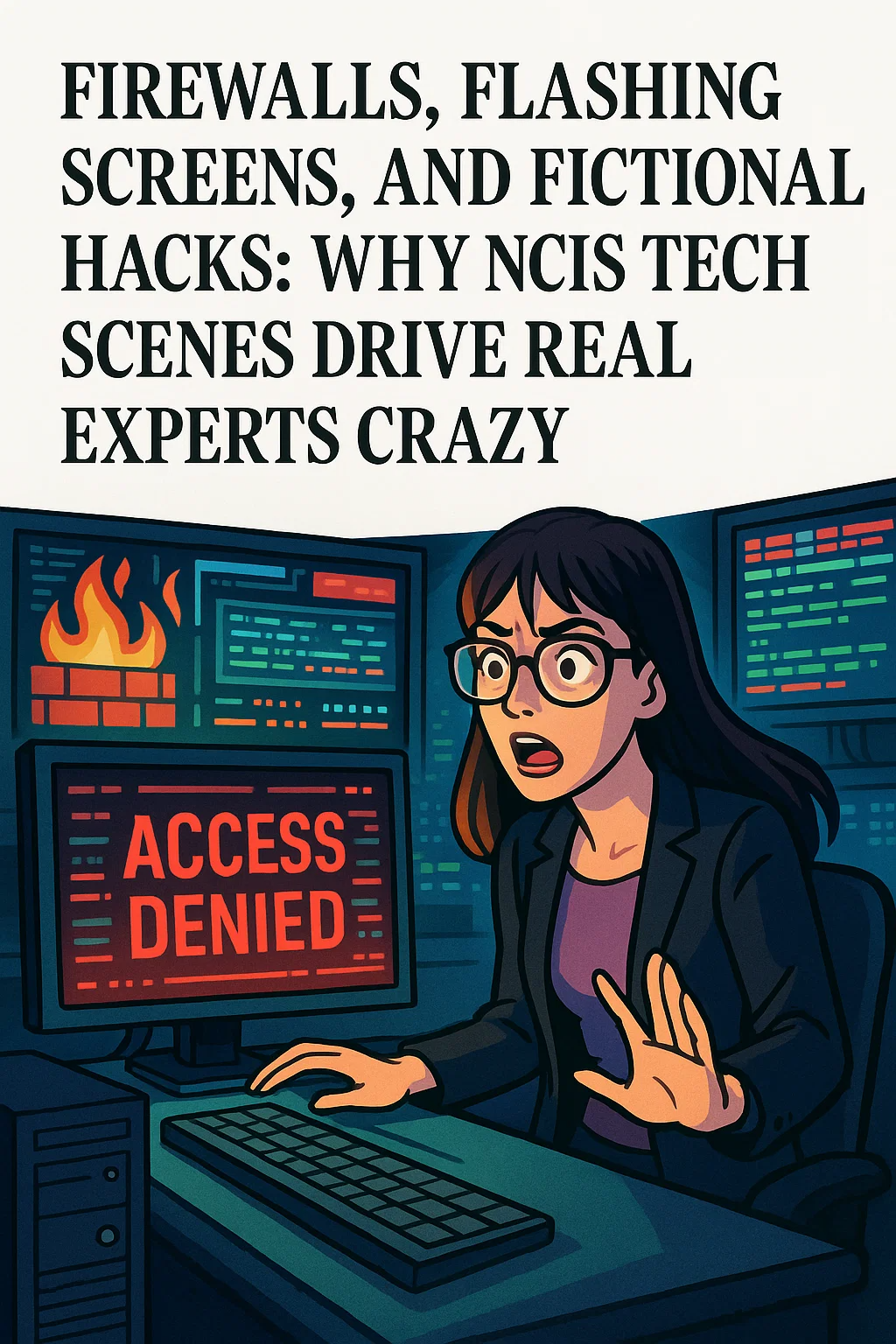
For more than 20 years, NCIS has been a small-screen powerhouse. Each week, millions of fans tune in to watch Gibbs, McGee, Abby, and the rest of the team untangle deadly conspiracies and catch criminals with a mix of grit, gut instinct, and—most memorably—some truly dazzling computer wizardry. From firewalls falling in seconds to instant IP traces that pinpoint a suspect’s location before the next commercial break, the show has perfected a brand of cyber-sorcery that feels as thrilling as it is implausible.
But while casual viewers might cheer when McGee furiously types his way into a terrorist’s laptop, professionals in the real world—cybersecurity experts, digital forensics analysts, and programmers—are usually left groaning. Increasingly, tech insiders are calling out NCIS for its rampant inaccuracies, pointing out that many of the show’s most iconic moments are less “high-tech heroics” and more “Hollywood fantasy.”
As one exasperated analyst summed it up: “No one talks this way.”
The Hollywood Hacking Hall of Fame
What NCIS does so well is part of a much larger trend known as “Hollywood hacking.” It’s the practice of transforming a long, meticulous process into a short, visual spectacle designed to keep viewers glued to their screens. While the creative license makes sense for TV pacing, certain NCIS scenes have become so notorious, they’re practically memes in the tech community.
The Infamous Two-Person Keyboard
Ask any NCIS fan about unrealistic computer moments, and odds are they’ll bring up the scene—two people typing simultaneously on the same keyboard. McGee might be hacking left keys while Gibbs slams on the right, all while they spout lines about “bypassing the firewall” or “building a backdoor.”
In reality? Two people typing together doesn’t speed anything up; it just creates nonsense. As one cybersecurity professional quipped: “It’s like trying to drive a car with two people stepping on the gas at the same time.”
The Instant Hack
On NCIS, breaking into a secure network rarely takes longer than a commercial break. A few dramatic keystrokes, a flash of scrolling green code, and—bam!—access granted. Real hackers, however, know that breaching systems is a painstaking effort requiring weeks, if not months, of reconnaissance, trial-and-error, and exploiting vulnerabilities. The show’s breezy approach might be fun to watch, but it wildly misrepresents the grind of cybersecurity work.
Word Salad With a Side of Jargon
If you’ve ever scratched your head at the dialogue in the NCIS lab, you’re not alone. Characters often toss around tech buzzwords like “mainframe,” “firewall,” and “trace” in ways that make little sense. Sometimes, it sounds less like computer science and more like a random-word generator strung together for dramatic effect. For professionals who actually live in this world, it’s both laughable and cringeworthy.
Why NCIS Gets Away With It
So why persist in showing computer science as a high-speed thrill ride instead of the grueling reality? The answer lies in three little words: pacing, visuals, and drama.
-
Pacing the Plot: Realistic tech work would grind a procedural drama to a halt. Imagine McGee saying, “We’ll need to let this decryption run for six hours.” Not exactly edge-of-your-seat television.
-
Visual Storytelling: Watching someone quietly code is visually flat. The flurry of keystrokes, flashing lights, and racing dialogue turn otherwise static scenes into adrenaline-charged moments.
-
The Rule of Cool: In TV writing, there’s an unspoken rule that if something looks cool, it doesn’t matter if it’s realistic. The sight of two agents frantically typing together may be absurd, but it instantly conveys teamwork, urgency, and genius.
The Cost of Fiction
Of course, these shortcuts aren’t without consequence. Experts argue that such portrayals fuel public misconceptions about hacking, cybersecurity, and even the capabilities of law enforcement. When viewers see investigators crack encrypted servers in under a minute, they may develop unrealistic expectations of real-world agencies. In some cases, it could even erode trust when the truth—that investigations take time and patience—feels disappointingly mundane by comparison.
In an era where data breaches, ransomware attacks, and cyber-espionage dominate headlines, a more accurate portrayal could help educate audiences on the realities of digital security. But would fans still tune in if the “big hack” scenes turned into hours of coding and coffee breaks? Probably not.

Between Accuracy and Entertainment
Ultimately, NCIS isn’t a computer science documentary—it’s a crime drama built on character chemistry, suspense, and spectacle. The tech scenes, no matter how ridiculous, serve their purpose: they keep the story moving and the audience engaged.
Yes, cybersecurity pros will continue to roll their eyes when Abby “hacks the mainframe” in thirty seconds flat, but millions of fans will still cheer the moment she yells, “I’m in!”
And maybe that’s the real secret to NCIS’s success: knowing that even if no one in the real world talks—or types—that way, audiences will happily suspend disbelief for just one more case with Gibbs’ team.